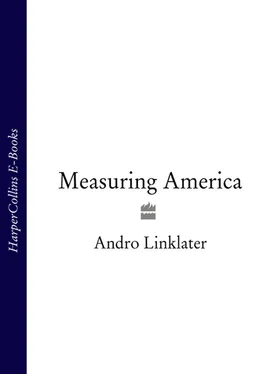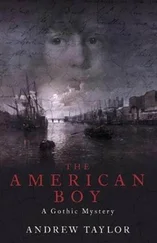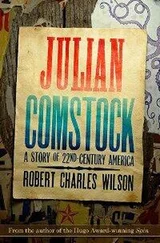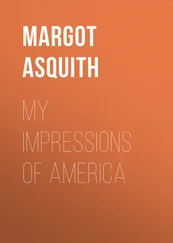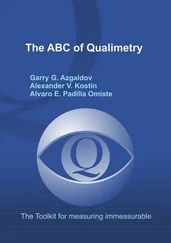In 1760 Willliam Small was just twenty-four, a product of those Scots universities which bred in the likes of David Hume and Adam Smith a restless desire to find a rational key to understanding human nature and human society, and to sixteen-year-old Thomas Jefferson he must have seemed like an ideal elder brother. ‘He, most happily for me, became soon attached to me & made me his daily companion when not engaged in the school,’ Jefferson remembered gratefully, ‘and from his conversation I got my first views of the expansion of science & of the system of things in which we are placed.’
The most obvious consequence of Small’s company was that all his life Jefferson preferred to think of himself as a scientist rather than a politician. ‘Nature intended me for the tranquil pursuits of science, by rendering them my supreme delight,’ he wrote soon after his retirement from the presidency, ‘but the enormities of the times in which I have lived have forced me to take a part in resisting them and to commit myself on the boisterous ocean of political passion.’ Politics, even sometimes the United States itself, he would refer to as ‘an experiment’. In his house he hung portraits of Francis Bacon, modern science’s founding father, and Isaac Newton, its greatest luminary. He studied botany, the most highly developed science of the day, and prided himself on his membership of the American Philosophical Society, the country’s leading scientific body. In old age, he boasted to his friend and enemy John Adams, ‘I have given up newspapers in exchange for Tacitus and Thucydides, for Newton and Euclid, and I find myself much happier.’
It was Isaac Newton above all who had expanded science and shown how the system of things was made. The consequences of Newton’s laws of motion were fundamental to the development of physics and astronomy in general. In Newtonian physics there were theoretical explanations for every event, from the movement of the planets to the swing of a pendulum, and two brilliant analyses from his monumental Philosophiae Naturalis Principia Mathematica (Mathematical Principles of Natural Philosophy), published in 1687, provided what would prove to be the real starting-point for modern measurement. Newton deduced that instead of being a perfect sphere, the earth bulged at the equator and flattened at the poles; consequently, gravity would be stronger at the poles, because they were closer to the centre of the earth. Once the shape of the earth was known, the possibility of estimating its size offered eighteenth-century scientists a foundation for the first new way of measuring things to be devised in ten thousand years.
But Newton’s laws also taught a lesson that went beyond physics. In the universities of Aberdeen, Edinburgh and Glasgow, the belief was encouraged that just as it was possible to discover through rational enquiry the fundamental principles that governed the natural world, so reason made it possible to understand the principles governing human nature. This, the essential outlook of the movement known as the Enlightenment, was what William Small passed on, and what Jefferson meant by understanding ‘the system of things in which we are placed’.
‘Fix reason firmly in her seat, and call to her tribunal every fact, every opinion,’ he would later advise his young nephew, in an echo of Small’s teaching. ‘Question with boldness even the existence of a god; because, if there be one, he must more approve of the homage of reason, than that of blindfolded fear.’ Once rational enquiry had uncovered the principles of human nature, it would be possible to establish the conditions under which individuals could be allowed as much liberty as they desired, and yet a rational, self-regulating society would emerge.
Owning land, for example, would give society’s members an interest in building a law-abiding, democratically based community, and education would teach them how best to use their freedom. The ideal, therefore, was to distribute land and schools as widely as possible. By the same criterion, the accumulation of too much land by one person had to be opposed, because it prevented others acquiring it. Nothing illustrates better the difference between Peter and Thomas Jefferson than the father’s restless search for more acres, and the son’s unrelenting opposition to land speculators whose profits depended on driving up the price of empty land. ‘Whenever there are in any country uncultivated lands and unemployed poor,’ Thomas wrote soon after independence had been won, ‘it is clear that the laws of property have been so far extended as to violate natural right.’
That was the wisdom that Jefferson derived from William Small and his circle of friends. It appealed profoundly to a young man who, as Joseph Ellis observed, craved for ‘a world in which all behavior was voluntary and therefore coercion was unnecessary, where independence and equality never collided, where the sources of all authority were invisible because they had already been internalised’.
In 1764, Small returned to Britain, but Jefferson never ceased to feel gratitude to the man who, he acknowledged, ‘filled up the measure of his goodness to me, by procuring for me, from his most intimate friend G[eorge] Wythe, a reception as a student of law under his direction, and introduced me to the acquaintance and familiar table of Governor Fauquier, the ablest man who had ever filled that office. With him, and at his table, Dr. Small & Mr. Wythe … & myself, formed a partie quarrée , & to the habitual conversations on these occasions I owed much instruction.’
After independence was declared in July 1776, Jefferson returned to Virginia, where his reputation as the Declaration’s prime author led to his appointment to a committee revising the state’s laws so that they reflected republican rather than royalist values. It is a telling fact that at this, his first opportunity to put theory into practice, he put forward what might be called the full Small programme.
The best-known of his proposals is the ‘Statute for Establishing Religious Freedom’, a landmark in legislative tolerance; but no less significant were otherwise banal bills to change inheritance law so that a landed estate could be left equally to all the children rather than to the eldest son alone, and to prohibit clauses in a will preventing later generations dividing up land among several heirs. At the same time, Jefferson introduced a bill to give seventy-five acres to any Virginian who did not already have any land, and to offer a ‘head-right’ grant of fifty acres to every landless immigrant who arrived in the state from overseas. Together with Virginia’s generous promise of land to soldiers enlisting in its regiments – ranging from a hundred acres for enlisted men up to fifteen thousand acres for a major-general – Jefferson’s land grant proposals would have created a network of small farms guaranteeing the future health of democracy in the state.
To complete the Saxon ideal, Jefferson came up with a plan for wholesale administrative and educational reform – or as he put it, ‘I drew a bill for our legislature, which proposed to lay off every county into hundreds or townships of 5. or 6. miles square, in the centre of each of which was to be a free English school.’
As any of his fellow Virginians could have warned him, Virginia politics did not work like that. When the state came to dispose of its unoccupied land in 1783, the Act that finally emerged from horse-trading in the Assembly was designed to sell the territory with as little restriction as possible, and the process turned into a swill-bucket for speculators. Surveyors were bribed into setting aside the best plots, land warrants were acquired cheaply from army veterans, and wads of the state’s devalued paper currency, which carried the right to claim unoccupied land, were bought up for a quarter of their value.
Читать дальше
